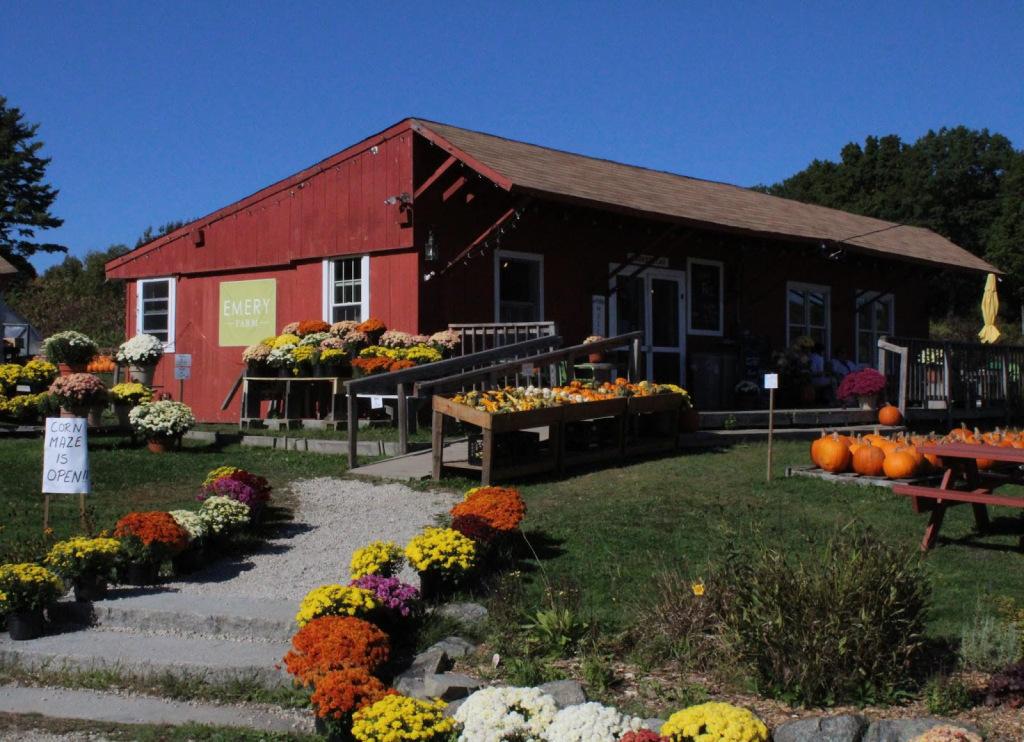Located six minutes from Oyster River High School, Emery Farm is locally run and has been operating for over 350 years. Hills has offered the Society for the Protection of New Hampshire Forests a 36 acre conservation easement far below market price at $1.4 million. The Forest Society has $80K of the $1.4 Million left to raise. The 36 acres are located next to Wagon Hill on the southern side of Route 4, running from Route 4 to great bay.
A conservation easement will allow for the current practices of the farm to be continued, and will prevent development of that land. Ryan Young, a land agent for the Forest Society, is working on the Emery Farm project. “We will not own any of the land, but we are in a way purchasing the development rights,” said Young.
The current landowner will still own the farm and be able to manage it for agriculture, forestry, recreation and wildlife. “The easement enables the practice that has been happening here, which is rotating crops… We’ve also harvested timber when the timing is appropriate, so we’ll continue to do that across the street,” said Hills.
This parcel of land is the last piece of Emery Farm to be conserved. Previously, Hills worked with the Forest Society to conserve 58 of the 110 acres of the farm. There is a 6 acre section bordering the northern side of Route 4, which contains all of the buildings and homes except for the farmstand, that will remain in the hands of Hills.
Hills is the tenth generation of his family on this farm, but he is not a farmer. He has leased the fields to two farmers, Bill and Brad Towle, for 27 years. Beginning last year he started leasing the farmstand to Holly Philbrick Craig. “I’ve always really appreciated land and felt really fortunate to live in a place where you have a sense of space, openness, and an appreciation of seasons,” said Hills.
Keeping Emery Farm undeveloped won’t only be beneficial aesthetically. “The property’s location on the tidal Oyster River and Smith Creek makes the protection of this land a high priority for both aquatic [and land] wildlife habitat quality,” said Young, “We believe that this particular parcel is better suited to produce food crops than it is for a residential or commercial development.”
Hills has been making all decisions regarding the farm with his wife, Catherine. “[We] try to make decisions that we think will be good for the land, the environment, ourselves, and our children,” said Hills.
Young hopes that they will be able to close the easement purchase sometime before 2018, however the Forest Society has as long as they need to raise the money. “This process is not for those who are impatient,” said Hills, who has been working with the Forest Society since 2011 on this easement piece.
Young states that it has been challenging to raise money, but they’ve been fortunate enough to receive several grants. Organizations like the Natural Resources Conservation Service, the Land and Community Heritage Investment Program (LCHIP), the Town of Durham, the Great Bay Resource Protection Partnership, and Great Bay 2020 have helped a ton. “Every gift helps! If [anyone is] able to make a tax deductible contribution to the campaign that will help us to [reach] the finish line!” said Young.
To learn more about the project or to make a donation see the Forest Society’s website.

